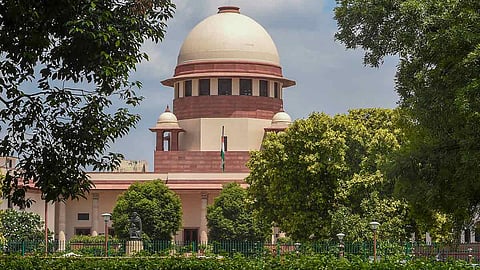

The Supreme Court, on Monday, September 2, said that it would lay down pan-India guidelines pertaining to the punitive action of authorities to demolish the houses of those accused in crimes, popularly referred to as “bulldozer justice.” A bench of Justices BR Gavai and KV Viswanathan were hearing a batch of pleas, including one by former Rajya Sabha MP and CPI(M) leader Brinda Karat, that challenged the bulldozer actions taken by various state authorities, without any prior notice and as a “form of revenge”.
The petitions were filed by Mohammad Hussain from Madhya Pradesh and Rashid Khan from Rajasthan. Rashid’s house was demolished by the Udaipur municipal corporation for allegedly “encroaching” on forest land, shortly after his 15-year-old son was arrested for allegedly stabbing his Hindu classmate that led to communal tensions. These petitions are part of a batch of pleas challenging demolition drives in states such as Delhi, Uttar Pradesh, and Madhya Pradesh.
The top court asked counsels of the petitioners to submit suggestions to frame guidelines about demolition drives that can be used across India. The court directed to submit the suggestions to senior advocate Nachiketa Joshi, who is tasked with collating and presenting the guideline to the court.
According to LiveLaw, the court had also expressed concerns about demolition of houses as a mode of punishment. "How can a house be demolished just because he is accused? It can't be demolished even if he's convict.." Justice Gavai had said and added that some guidelines are necessary. The bench had also said that demolition of unauthorised structures should also be carried out in accordance with the law.
Solicitor General of India Tushar Mehta, who appeared on behalf of the State of Uttar Pradesh, submitted that the state is against demolition of houses just because a person is alleged to be part of an offence. Uttar Pradesh has also submitted an affidavit in the regard.